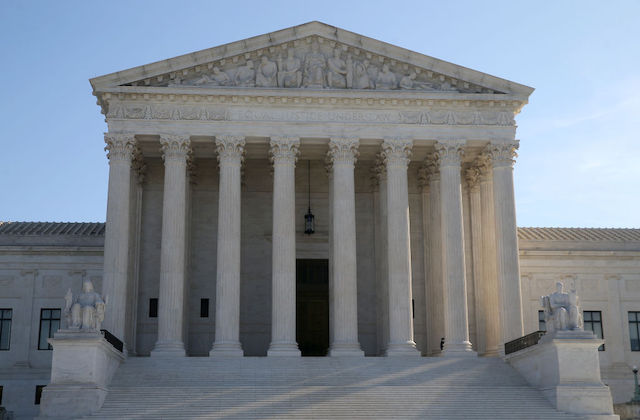The United States Supreme Court ruled in April that any law allowing felony convictions with a non-unanimous jury is unconstitutional and in violation of the Sixth Amendment to the U.S. Constitution. On Wednesday (December 2), the court will decide whether hundreds of people still incarcerated via non-unanimous jury convictions in Louisiana and Oregon—the last two states to carry such laws—have the right to a new trial, CBS News reports.
In 1994, when Jerome Morgan was 17-years-old, he was imprisoned on second-degree murder charges when 10 out of 12 jurors voted to convict. The two jurors who voted to acquit the teen were the only Black people on the jury. As a result, Morgan ended up serving 20 years for a crime he did not commit.
Reports CBS:
The then-17-year-old was at a New Orleans birthday party in 1993 and hid when gunshots rang out, before helping save the life of a victim who later testified in Morgan’s defense. Still, it would be nearly 20 years before the Innocence Project New Orleans discovered evidence that led to Morgan’s exoneration in the murder of a 16-year-old who died in the shooting.
In April’s SCOTUS ruling against felony convictions by a non-unanimous jury, Justice Neil Gorsuch wrote in the 6-3 majority opinion that these laws were in place to render Black juror service "meaningless,” CBS reports. Similarly, Justice Brett Kavanaugh said these laws originated as "a pillar of a comprehensive and brutal program of racist Jim Crow measures against African Americans."
Morgan, who is now 44 years old, expressed his frustration when speaking to CBS. "Had that law been corrected back in 1993, I would’ve never got convicted and ended up wasting 20 years of my life," he said. "We have a lot of racist laws here in Louisiana that should have been corrected long ago and it burns at you."
On Wednesday, lawyers will argue in front of SCOTUS that hundreds of people still imprisoned on non-unanimous jury convictions in Louisiana and Oregon deserve the right to a new trial. According to CBS:
Louisiana’s non-unanimous jury system was designed to "facilitate the convictions of Black citizens," according to a Supreme Court amicus brief filed by the New Orleans-based Promise of Justice Initiative, which provides legal support to those in the state impacted by the rule. An analysis released by the group last month found that more than 1,500 people are still incarcerated in Louisiana due to non-unanimous jury verdicts — 80% of whom are Black. The group found that 62% are serving a life sentence without parole.
According to the New Orleans Advocate, the racist non-unanimous jury system in Louisiana was born during the 1898 state constitutional convention, in which delegates wanted to "establish the supremacy of the white race in this State to the extent to which it could be legally and constitutionally done.”
Jamila Johnson, managing attorney for the Jim Crow Juries Project at the Promise of Justice Initiative, explained to CBS that the 1898 constitutional convention happened “just as Black Louisianans were being increasingly convicted and sentenced to labor terms over laws that criminalized a lack of housing and employment in the decades that followed the Civil War.” At that point, the state constitution created strict barriers for Black voters and allowed for defendants to be convicted by a 9-3 majority of jurors. This completely silenced Black jurors.
Louisiana residents voted overwhelmingly against non-unanimous jury laws in November 2018, but Oregon didn’t end the practice until the SCOTUS ruling in April.
As CBS reports:
The case was brought by Evangelisto Ramos, a Louisiana inmate convicted of murder in a 2014 killing by a 10-2 jury vote. In his concurring opinion, Kavanaugh wrote, "To state the point in simple terms: Why stick by an erroneous precedent that is egregiously wrong as a matter of constitutional law, that allows convictions of some who would not be convicted under the proper constitutional rule, and that tolerates and reinforces a practice that is thoroughly racist in its origins and has continuing racially discriminatory effects?"
The April SCOTUS ruling allowed new trials for “defendants convicted by a non-unanimous jury with appeals still pending,” CBS reports. However, anyone with finalized convictions was left in limbo. On Wednesday the court “will weigh Edwards v. Louisiana, a case that looks at whether the Ramos decision should apply retroactively, affording those with finalized convictions due to a non-unanimous jury a new trial,” according to CBS.
"In the prisons today, folks see the news, they see the protests around George Floyd, they see this change in the conversation about race in America,” Johnson told CBS. “And there is just this sadness that we don’t have a system that automatically provides a remedy for them."
